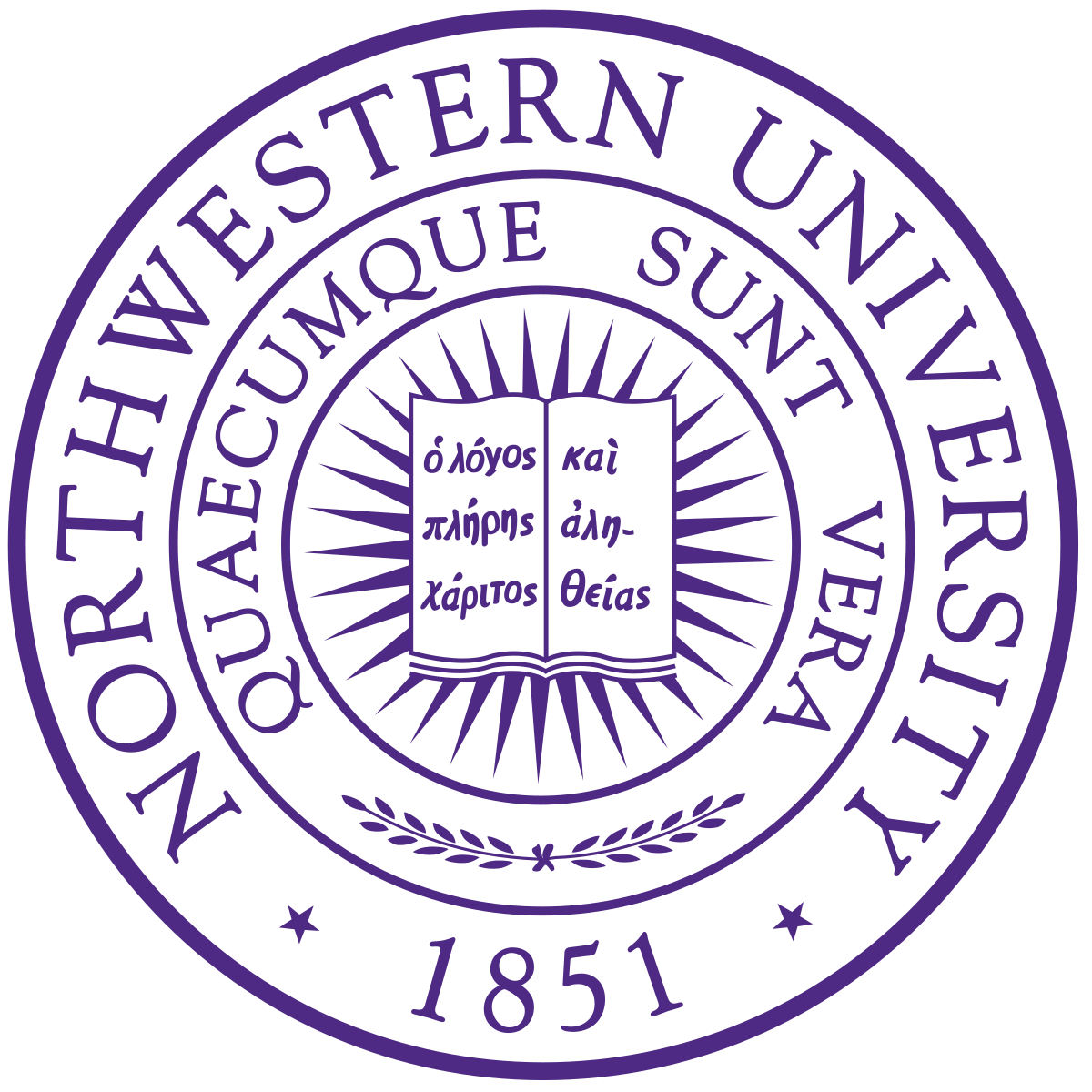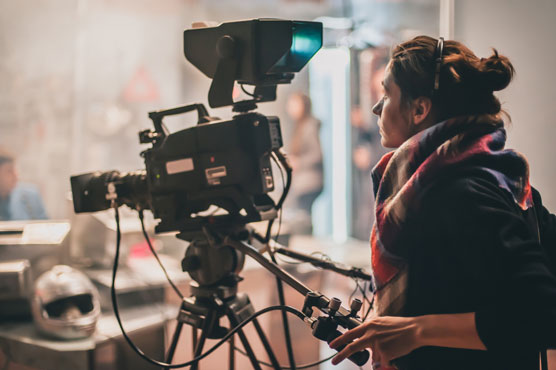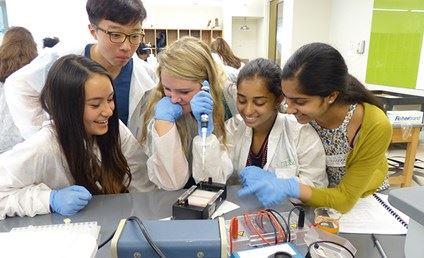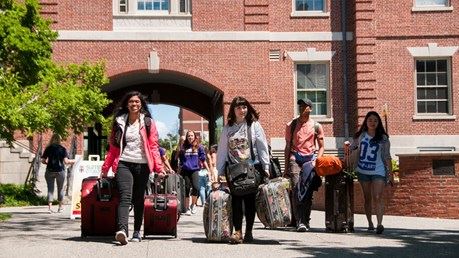





 Unofficial Transcript
Unofficial Transcript  Several Essays
Several Essays  Resume
Resume  1 Recommendation
1 Recommendation  Online Application From
Online Application From  Application Fee
Application Fee  Official Transcript *
Official Transcript *
 Standardized Test Scores *
Standardized Test Scores *



Application is closed


The NHSI Film & Video Institute offers students the same quality of experience they will encounter at top collegiate film programs, including Northwestern’s Radio-Television-Film Department. “Collaboration” and “Story” are the pillars that guide our curriculum, with an emphasis on film-“making”. Students get to experience the world-class facilities at Northwestern University, get a taste of Chicago, and steep themselves in their art for five weeks. Students leave this program better filmmakers, communicators, and collaborators.
 Non-credit
Non-credit
 Residential
Residential
NHSI Film & Video Institute students can choose between a concentration of study in Acting on Camera, Production, or Screenwriting.
Acting on Camera
An intensive five-week course focused on tailoring performances to the screen, students learn how to analyze character, make strong performance choices, and basic production techniques.
Production
The production concentration is intended to teach a wide range of practical strategies and tools available for creating film meaning, and to encourage creative approaches to production. Students are instructed in both technical and aesthetic aspects of film-making through hands-on exercises and short projects. All students learn in Northwestern editing Labs.
Screenwriting
“A good story well told”: Screenwriting students study fundamentals of storytelling and screenplay structure, gaining an understanding of the most important part of any film: the story. Built on a foundation of practical application and interdisciplinary collaboration, students are exposed to great works of cinema that inform and enrich their final productions.
- Learn from a world-class faculty of working film professionals
- Hone your skills in screenwriting, directing, acting and production
- Explore Adobe Creative Cloud and Discover how to make and edit your films
- Attend special sessions with Northwestern RTVF faculty
All students must live on campus. Most students will have a roommate. Rooming requests will not be accepted except in the case of requests regarding medical conditions. Students who identity as males and females will be separated by floors or by common areas. All residences are air-conditioned. All meals are eaten in University dining halls.
Sample Listing of Elective Courses
Please note that not all electives are taught every summer. These are a sampling of electives that have been taught in past summers.
Long Take
Working as a team, students will learn to write, design, block, rehearse and shoot an epic long take (a single, uninterrupted shot often lasting several minutes).
TV Writer’s Room
In this elective we’ll break down the basics of the showrunner – writer relationship and discuss crucial topics in TV writing like: ‘table breaking’, TV structures, ‘checker boarding’, show ‘engines’, cliffhangers, teases and tags, irreconcilable conflicts and much, much more.
The Story of a Space
In this elective, students will be challenged to find stories hidden in the spaces around them through video, sound, and the edit. Working in small groups, each team we’ll investigate, record, and manipulate a unique space of their discovery. By the end of the course, each team will edit a short documentary that creates a story from the observable and often alterable world around them.
Director’s Notebook/Script to Screen
Director’s Notebook: This two-part elective will mainly deal with the process of pre-production.
Script to Screen: You have a script. Now what? Script to Screen gives you tools to see the words on the page realized on the screen using professional methods that breakdown shooting logistics.
Improvisation Workshop
In this workshop, we will investigate how improvisation can be used to explore and develop elements of character, intention, environment, action and story. Through the use of various games and exercises we will build stronger connections to all elements of the imagined and created world.
TV Pilot
While we discuss TV basics and tricks of the trade, we will watch and discuss the first episodes of hour-long dramas, dissecting them, finding out what makes them work, how they succeed and how they fail. Students will then take what they’ve learned and apply that to their own ideas, assembling an outline for the pilot and even writing the teaser and first act.
Commercials & Voiceovers
In this acting class you will be given a variety of commercial copy to practice on-camera with direction and feedback as well as voice over scripts to be practiced and recorded in the sound booth. We will break down the formula of a commercial, investigate storyboards, find the tone and humor, as well as practice improvisation, partner work, and spokesperson copy. This will be a fun and challenging class to add to your actor toolbox.
VFX/After Effects
The intention of the class is to give students a fun introduction to the world of graphics and visual effects. We’ll use Adobe After Effects to explore effects such as muzzle flashes, green screen keying, Harry Potter wand action, and animated titles. This is an introductory class, so no experience required.
Spectacle
Students in this laboratory-style class will explore using low budget materials to create high concept products.
Breaking The Rules
A discussion class, on the history and theory that examines cinematic waves that broke the conventions and masterful directors who broke the rules, thus redefining and re-establishing new cinematic conventions.
Digital Photography 101
This course is an introduction to digital photography where students will learn photography fundamentals and DSLR camera operation. This course will provide the student with basic aesthetic principles as well as a range of practical photographic techniques useful for obtaining greater creative control and improved image quality.
Character & Dialogue
In this elective, we will work to discover YOUR INDIVIDUAL STYLE by learning to create memorable characters with specific voices and crafting one of the most challenging scenes you’ll ever have to write.
Directing Actors
Directing Actors is a hands-on workshop for directors and actors to learn how to work together to create a truthful performance. The class is open to directors, actors and screenwriters and it studies the different techniques of actor/director communication.
Coming Soon
This elective allows students to explore the technical side of the production AND post-production process as they learn to incorporate VFX, SFX, and practical effects into their projects. This class includes hands-on experience with sound effects libraries, green screen compositing, and After Effects software.
Advanced Cinematography
The art of cinematography – an exploration of the cinematic look. With a combination of theoretical study and hands-on exercises, students build a rich understanding of a cinematographer’s most important skill-sets – light, color, cameras, formats, lenses, frame composition and shooting practices. There is a strong emphasis on student cinematographers’ preparation for their own film projects shot during the film program.
Advanced Post
Part I: ADVANCED EDITING: In advanced editing, students will learn how to edit for dramatic effect by breaking scenes down into “editing beats.” Students will be exposed to different editing styles such as editing for genre (difference between comedy, horror, drama…), but also learn effective storytelling techniques such as intercutting, jump-cutting, montage editing & time manipulation. In the final class, we will talk about creative sound design and effective use of music in film.
Part II: COLOR GRADING: The color grade is an essential part of creating a cinematic experience. In this course you will learn how to apply the right look for your film projects. With a small theoretical part, this course will be hands-on. We will work with the projects you shoot during the film program.
Action Sequence
This class will be very physical. We will start by learning basic hand to hand combat such as punches, slaps, kicks, slips, and falls. We will learn to safely choreograph violence for the camera ultimately leading up to a full action sequence.
If you would like to apply to the NHSI Film & Video Division, you should:
1 - Be currently enrolled in your sophomore or junior year of high school
2 - Rank academically in or near the top 30% of your high school class
3 - Meet a high standard of character, dependability, and intelligence
4 - Give evidence of special ability or substantial interest in the media arts
 Unofficial Transcript
Unofficial Transcript
 Several Essays
Several Essays
 Resume
Resume
 1 Recommendation
1 Recommendation
 Online Application From
Online Application From
 Application Fee
Application Fee
 Official Transcript *
Official Transcript *
 Standardized Test Scores *
Standardized Test Scores *
1. Fill out and submit the National High School Institute Application including $50 application fee.
2. You will receive an email from NHSI confirming your application has been received along with next step instructions on how to complete your application. You should receive this confirmation email within 2-3 business days of submission.
3. Submit the supplemental materials required to complete your application which include a resume, two essay responses, a letter of recommendation, current high school transcript, and if available standardized test scores. Further details will be included in your confirmation email.
Deadline
Early Admission Deadline
January 5, 2024 – Online Application Forms Due
January 12, 2024 – All supplemental materials are due
February 9, 2024 – Students will be notified of their admittance status by 5pm CST
Regular Admission Deadline
March 8, 2024 – Online Application Forms Due
March 15, 2024 – All supplemental materials are due
April 12, 2024 – Students will be notified of their admittance status by 5pm CST
 Jun 23 - Jul 27
Jun 23 - Jul 27
 5 weeks
5 weeks
Upon acceptance, we will create a student account for you and send your login information via email. A $1,000 non-refundable tuition deposit will be required within 1 week of receiving your account information to reserve your spot in the Film & Video program.
If you are applying for Financial Aid from the NHSI, you will not be required to make a deposit until you have been notified of your aid award.
The full tuition balance is due by May 24, 2024. If the tuition balance is not received by May 24th and we haven’t heard from you, your spot will no longer be guaranteed and may be offered to someone on the waitlist.
If a student withdraws from NHSI before June 3, 2024, the University will refund 100% of tuition, including room and board charges, minus the non-refundable $1,000 deposit.
There will be no tuition refunds after June 3, 2024. In the unlikely event that a student is dismissed from the program, tuition payments are non-refundable.
Other Fees
$50 NHSI Application Fee for first application; $20 Application Fee for each subsequent application if applying to more than one concentration or program
$40 FACTS Financial Aid Application Fee (collected directly through the FACTS application)
Financial Aid
Need-based Scholarships and Financial Aid are available.




 Unofficial Transcript
Unofficial Transcript
 Several Essays
Several Essays
 Resume
Resume
 1 Recommendation
1 Recommendation
 Online Application From
Online Application From
 Application Fee
Application Fee
 Official Transcript *
Official Transcript *
 Standardized Test Scores *
Standardized Test Scores *



Application is closed

Useful Resources




















Tell us your
opinion about us